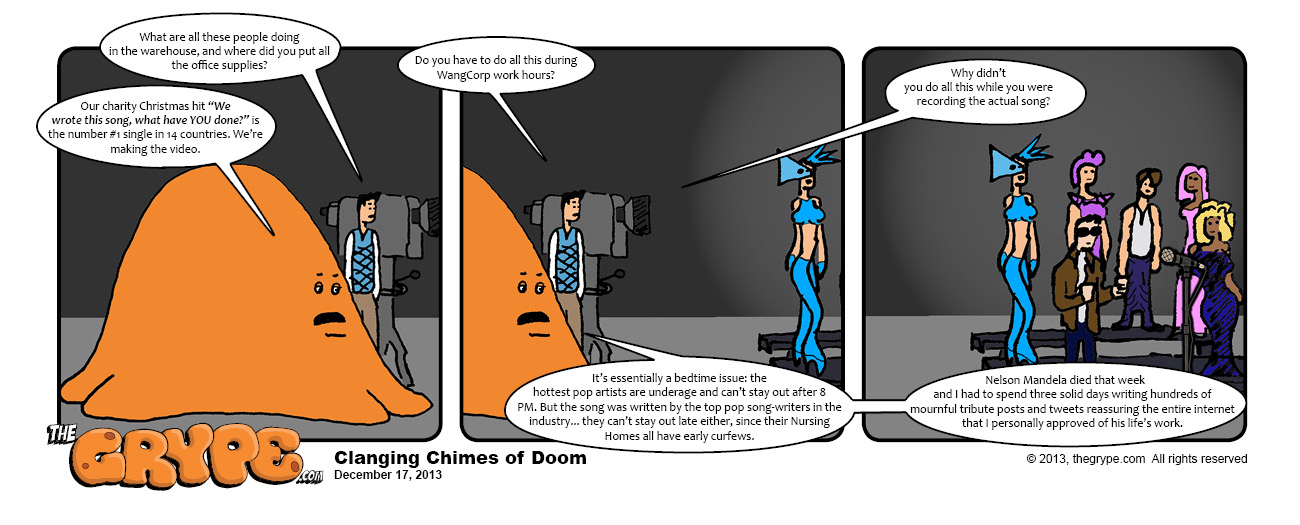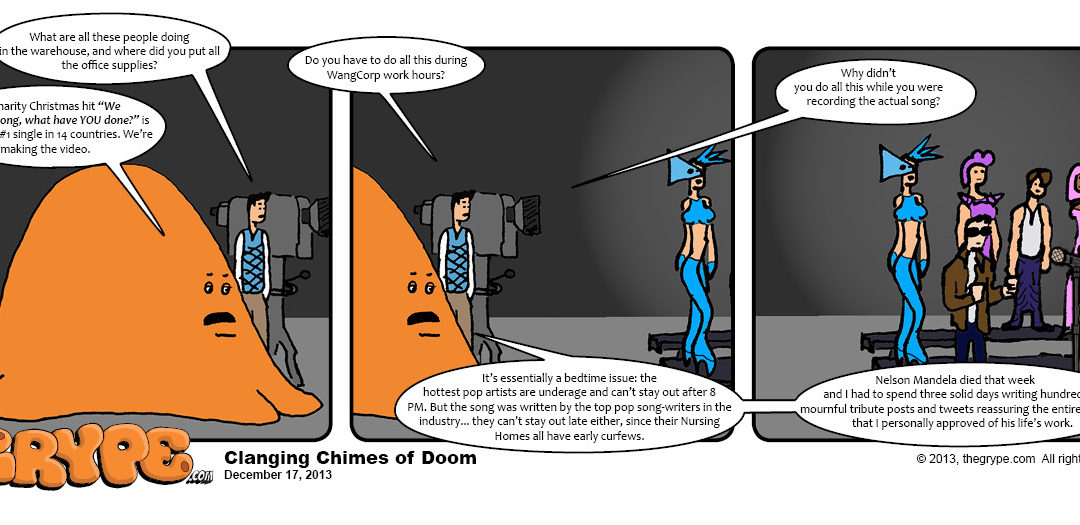 Surfing cable channels yesterday, I suddenly realized the reason “old TV” sucked is the opposite of why “modern TV” sucks… wide-spectrum conformity vs. acute specialization.
Surfing cable channels yesterday, I suddenly realized the reason “old TV” sucked is the opposite of why “modern TV” sucks… wide-spectrum conformity vs. acute specialization.
Back when there were only three major TV networks, producers had to create programming suitable for (and popular with) every television-owning household in America. Competition was fierce; the big networks dared not alienate their commercial demographic, despite having to cater to a wide range of social backgrounds, cultural opinions, and regional biases. So all media programming was purposely generalized and watered-down to inoffensively appeal to as many viewers as possible, resulting in a lot of fairly-tepid family sitcoms, hospital dramas, and formulaic cop shows. Much of which sucked, due to its repetitive, generic commonality (“What do you mean, ‘Timmy fell down the well AGAIN?'”).
Cable television ended that. Satellite transmission and pay television services propagated new channels to target hyper-specific sectors of the population. Eventually there was a cable channel for everyone, each aimed at a specific viewer demographic. The result is a slurry of dedicated programming SO SPECIALIZED it has dubious appeal to anyone beyond its target audience… whole networks dedicated to surgical footage or dumpster diving, or… well, you name it. Much of which is pretty lame and crappy. The suckiness of wide-spectrum conformity has been replaced by the equally annoying suckiness of acute specialization.
But specialization, often touted as the progenitor of “rarity” (and theoretically, of value) doesn’t always translate into profitability. Too concise a degree of specialization results in a market too small to support the needs of its suppliers across a sufficiently-wide scale. Recent generations of med-school students have discovered that training as a specialist might be faster than studying to become a General Practicioner, but it definitely limits your clientele (and your income) after graduation. You see this same syndrome a lot in the modern workforce; one frustrating example is when someone devotes his or her efforts toward a specific undertaking (especially in the arts) and becomes incredibly proficient at it, only to discover— to their personal chagrin— that they can’t make a decent living at it. Through no fault of their own. They may be amazingly talented in their chosen undertaking, good enough that people will gladly pay them money to do it… just not enough people, and not enough money. It’s heart-rending when a skilled craftsman, talented artist, or brilliant performer discovers that despite having done everything right, painstakingly educating themselves and investing long years “paying their dues” and honing their skills to a razor’s edge… that there STILL isn’t enough widespread interest in their field of endeavor to support their practice of that trade as a real career.
That realization comes with a bitter sense of having been betrayed by the system. Our parents and teachers promised that if we discovered our true calling, exhibited the appropriate talent, and worked hard and applied ourselves, the end result MUST be a successful, rewarding career for Happily-Ever-After? Right?
Not always. In order for anyone to be successful selling a product (ANY product, even the product of our art) there must be a market for it. The more extensive the market, the higher probability a supplier in that market will find success. It’s wise to broaden your horizons and keep your options open. Everyone wants a bankable specialty, but variety remains the spice of life… and the keystone of thriving commerce.
(originally appeared on 6/5/2012)

